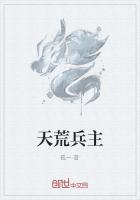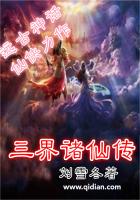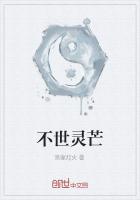过去完成时是个相对的时态,不能离开过去某个时刻或动作而“独闯天下”,只能早于过去某时或某个动作,或频频用于主句为一般过去时的宾语从句中。
8.1过去完成时概述
1.定义
过去完成时表示一个动作或状态在过去某一时间或动作之前已经完成或结束,也可能是早已完成或结束,即“过去的过去”;也可以指过去的动作延续到过去的某个时刻。
2.构成
过去完成时由“had +动词的过去分词”构成,had 通常用于任何人称。即:
had+past participle
3.功能
(1)过去完成时表示在过去某时或某个动作之前发生的动作或存在的状态,或表示经历或经验,即“过去的过去”,可以用by, before 等介词短语或一个时间状语从句来表示,也可以用一个表示过去的动作来表示,还可能通过上下文来表示。例如:
The organization had broken no rules, but neither had it acted responsibly.
该组织没有违反规定,但也没有履行职责。
Until then, his family hadn"t heard from him for six months.
从那时起,他的家人已经六个月没有收到他的来信。
When I woke up, it had stopped raining.
我醒来时,雨已经停了。
过去完成时的动作或状态均发生在过去,并在过去的时间里动作或状态已经完成。这时过去完成时的动作通常是短暂动作。
(2)表示由过去的某一时刻开始,一直延续到过去另一时间的动作或状态,常和for 及since 构成的时间状语连用。例如:
I said mother had been angry about your laziness since we moved here.
我说自从你搬到这儿以来妈妈一直为你的懒惰而生气。
We hadn"t seen each other since he left Beijing Jiaotong University.
自从他离开北京交通大学我们就一直没有见过面。
Before she came to China, Linda had taught English in a middle school for about five years.
在来中国之前,琳达已经在一所中学教了五年英语。
过去完成时的动作或状态均发生在过去,并在过去一段时间内重复发生。
Task 1
用括号内动词的适当形式完成下列句子。
1.When I got there, the windows (break).
2.By the time we got there, she (leave).
3.He (turn) off the light.We can leave now.
4.I (not realize) she wasn"t Chinese until she spoke.
5.He told us that he (give) the book to his brother.
8.2使用过去进行时的几种情况
(1)用于上下文语义中,叙述过去发生的事情。在已叙述了过去发生的事情后,反过来追述或补述以前发生的动作时,常使用过去完成时。例如:
Mr.Robert died yesterday.He had been a good family man.
罗伯特先生昨天去世了。他以前真是一个居家好男人。
She was very happy.Her whole family were pleased with her, too.She had just won the first in the Spelling Bee.
她赢得了拼单词比赛第一名,她和她的家人都很高兴。
(2)在含有定语从句的主从复合句中,如果叙述的是过去的事,先发生的动作常用过去完成时。例如:
I returned the book that I had borrowed.
我已归还了我借的书。
She found the key that she had lost.
她丢失的钥匙找到了。
(3)过去完成时常常用在told, said, knew, heard, thought 等动词后的宾语从句(或间接引语)中,这时从句中的动作发生在主句表示的过去的动作之前。例如:
I thought that I had seen him before.
我觉得我以前见过他。
Tom said he had kept the book for 2weeks.
汤姆说他借了这本书两周了。
(4)过去完成时表示在某一动作之前已经完成的动作,过去的时间由before, after, when,as soon as, till/until 引导的时间状语从句表示出来。在过去不同时间发生的两个动作中,发生在前的动作用过去完成时,发生在后的动作用一般过去时。例如:
The class had begun when I got to school.
当我赶到学校时,已经开始上课了。
He had left before I got home.
在我到家之前他已经走了。
注意:如果两个动作紧接着发生,则常常不用过去完成时,特别是在包含before 和after的复合句中,因为这时从句的动作和主句的动作发生的先后顺序已经非常明确,这时可以用一般过去时代替过去完成时。例如:
Where did you study before you came here?
你来这儿之前在哪里上学?
After he closed the door, he left the classroom.
他关上门后离开了教室。
(5)表示意向的动词,如hope, wish, expect, think, mean, suppose 等,用过去完成时表示“原本……,未能……”。例如:
They had hoped to see you off at the airport, but they got there too late.
他们本打算去机场为你送行,但是去晚了。
The result was better than what we had expected.
结果比我们想象的要好。
(6)用在hardly ...when ..., no sooner ...than ..., It was the first (second, etc.) time (that) ...等固定句型中。例如:
Hardly had he begun to speak when the audience interrupted him.
他刚开始演讲,听众就打断了他。
No sooner had he arrived than he went away again.
他刚到就又走了。
It was the third time that he had been out of work that year.
这是他那一年第三次失业了。
Dialogue & Analysis(此处有视频学习资料)
W: Why did you get up so early?
H: I got up early to do some housework.Remember what you said to me before sleep last night?
W: I said I had been angry about your laziness since we got married.(过去完成时表示在过去某时或某个动作之前发生的动作、存在的状态或表示经历、经验。)
H: What you said is right.You had done housework for 2months when I heard your complaints.(过去完成时表示过去某一时间以前开始一直延续到那个时间并可能继续下去的动作。)So I had finished ironing your shirt before you got up.(过去完成时表示某一个动作之前已经完成的动作,过去的时间由before 引导的时间状语从句表示出来。)
W: Oh, I"m so happy about what you have done.I had hoped that you became anindustrious man.(过去完成时可表示过去未实现的希望或计划。)
H: I am an industrious man now.Here you are.It"s really hard to iron it for it"s full of creases.What"s the matter, Jane?
W: Creases are what I want.But now you flatten it.
R ole PlayWatch the video one more time, try to imitate the dialogue with your partners, andthen, show your performance to your classmates.
Task 2
用括号内动词的适当形式完成下列句子。
1.We (paint) the house before we (move) in.
2.That rich old man (make) a will before he (die).
3.When I returned home, he (leave).
4.Paul (go) out with Jane after he (make) a phone call.
5.We (learn) about 4,000 English words by the end of last term.
6.I (wash) all the clothes.So I can have a rest.
7.They (stay) in China for a long time.
8.He (turn) off the light.We can leave now.
9.By the time we got to the cinema, the film (begin).
10.She (finish) her homework before I left school.
8.3一般过去时和过去进行时的区别
(1)在主从复合句中的用法不同。
① 用在宾语从句中。在主句谓语为一般过去时的宾语从句中,既可用一般过去时,也可用过去完成时,但两种时态的意义明显不同。试比较下列句子:
She said she was a teacher.
她说她是位老师。(说话时仍为老师)
She said she had been a teacher.
她说她曾当过老师。(说话时已不是)
She said she had been a teacher for twenty years.
她说她当过20 年的老师。(主要强调说话时已当过20 年老师,此状态可能在过去已经结束,也可能还没有)
注意:如果从句中有表示具体时间的状语,则常用一般过去时。例如:
He said he was born in 1989.
他说他是 1989年出生的。
② 用在含有before 的主从复合句中,before 本身就能明确地表示时间的先后关系,故多数主从句均使用一般过去时,而无需使用过去完成时。试比较下列句子:
We got to the station before the train had left.
火车尚未开动之前,我们就到了车站。
We had got to the station before the train left.
火车开出之前,我们就已经到了车站。
③ 用在含有when 的主从复合句中,由于when 本身不能明确表示时间的先后关系,谓语动词动作发生的时间先后需依据上下文来判断,先发生的用过去完成时,后发生的用一般过去时。例如:
When all his money had been used up, Peter had to turn to a friend for help.
当他的钱全都用光时,彼得只好转而求助于一个朋友。
注意:有时,主句和从句的谓语动词的先后关系十分明确,两个动作紧接着发生,前一动作引发后一动作,这时两者均用一般过去时即可。例如:
When the meeting was over, we left the hall.
散会后,我们就离开了大厅。
(2)在叙述两个或两个以上接连发生的动作用and, but, so 或then 等连接并按时间发生的先后顺序叙述时,只需用一般过去时。但有时为明确动作发生的先后顺序,先发生的动作就得用过去完成时。例如:
The farmers were in high spirits because they had got another good harvest.
农民们兴高采烈,因为他们又获得了一次好收成。
(3)一些表示心理活动的动词,如think,know,expect,mean,hope,want,suppose等,用一般过去时可表示存在于过去的心理活动。而这些词的过去完成时则表示的是过去未曾实现的愿望、打算、想法或意图等。例如:
I didn"t know you were here.
我不知道你在这儿。
We had hoped that you would be able to visit us.
我们原本希望你去看我们。
I.选择题。
1.The police found that the house and a lot of things .
A.has broken into;has been stolen
B.had broken into;had been stolen
C.has been broken into;stolen
D.had been broken into;stolen
2.By the end of this century, we ours into a strong modern country.
A.will build
B.had built
C.have built
D.will have built
3.We the work by six yesterday evening.
A.finished
B.would finish
C.had finished
D.had been finished
4.I to help you but couldn"t get here in time.
A.want
B.had wanted
C.have wanted
D.was wanting
5.Mrs.Wu told me that her sister .
A.left about two hours before
B.would leave about two hours before
C.has left about two hours ago
D.had left about two hours before
6.I lost the book I .
A.have bought
B.bought
C.had bought
D.had been bought
7.The bus had gone when I at the bus stop.
A.have arrived
B.arrived
C.had arrived
D.am arriving
8.Tom of visiting his grandmother, but the bad weather made him change his schedule.
A.has thought
B.thought
C.had thought
D.had been thought
9.- Did you meet Tom at the airport?
- No, he by the time I there.
A.has left;got
B.had left;arrived
C.left;arrived
D.left;had got
10.- Why didn"t Tom attend the meeting yesterday?
- He in Beijing.
A.was
B.am
C.had been
D.have been
II.按要求改写下列句子。
1.She had written the book by the end of 1960.(对画线部分提问)
2.We cooked the dumplings.We ate them up.(用过去完成时连接两个句子)
3.Jim"s father mended the car.It was broken.(用过去完成时连接两个句子)
4.We had our tests.Then we had a long holiday.(用过去完成时连接两个句子)
After we ______________________________, we ___________________________________.
5.He showed us the picture.Then he showed us around the house.(用过去完成时连接两个句子)
Before he _____________________________, he_____________________________________.
Fun Time
The English Language
Have you ever wondered why foreigners have trouble with the English Language?
Let"s face it.
English is a stupid language.
There is no egg in the eggplant,No ham in the hamburger.
And neither pine nor apple in the pineapple.
English muffins were not invented in England.
French fries were not invented in France.
We sometimes take English for granted.
But if we examine its paradoxes we find that Quicksand takes you down slowly.
Boxing rings are square.
And a guinea pig is neither from Guinea nor is it a pig.
If writers write, how come fingers don"t fing.
If the plural of tooth is teeth Shouldn"t the plural of phone booth be phone beeth.
If the teacher taught,Why didn"t the preacher praught?
If a vegetarian eats vegetables What the heck does a humanitarian eat?
Why do people recite at a play?
Yet play at a recital?
Park on driveways and
Drive on parkways.
You have to marvel at the unique lunacy Of a language where a house can burn up as It burns down.
And in which you fill in a form By filling it out.
And a bell is only heard once it goes!
English was invented by people, not computers.
And it reflects the creativity of the human race.
(Which of course isn"t a race at all.)
That is why
When the stars are out they are visible.
But when the lights are out they are invisible.
And why it is that when I wind up my watch It starts.
But when I wind up this observation,It ends.















